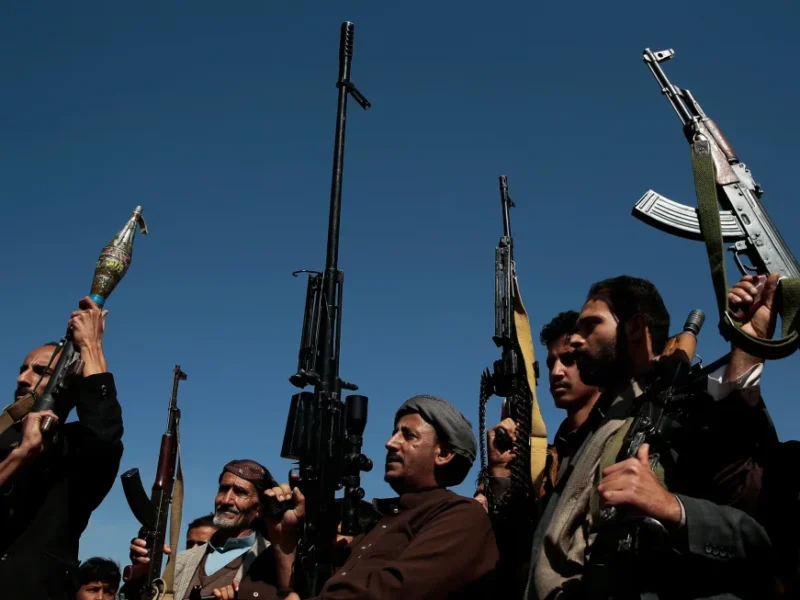US officials have noted signs suggesting that Iranian leadership is becoming apprehensive about the activities of its proxy groups in Iraq, Syria, and Yemen. This concern arises as attacks carried out by militia groups supported by Iran pose threats to the global economy and increase the risk of a direct confrontation with the United States.
A drone attack that resulted in the deaths of three American soldiers at a US outpost in Jordan, attributed to the Iran-backed Islamic Resistance in Iraq, took Iran by surprise and raised alarm among its political leadership, according to US intelligence sources cited by CNN.
Since October, Iran-backed militants have launched more than 160 attacks on US forces. While Iran has a history of financing, arming, and training proxy militias in the region with the aim of targeting Americans, the recent attack marked the first instance of US service members being killed in the ongoing series of near-daily assaults.
US intelligence also indicates that Iran is worried about Houthi militants in Yemen conducting attacks on commercial shipping in the Red Sea, as this could impact the economic interests of both China and India, key allies of Iran.
Officials caution that Iran’s growing apprehension is unlikely to lead to a significant change in its overarching strategy of supporting proxy attacks on US and Western targets. However, it may result in minor adjustments to their approach. Officials believe that Iran is pursuing a measured approach to the conflict, aiming to avoid triggering an all-out war.
Specific details about the intelligence have not been disclosed due to its sensitivity. The US typically gathers intelligence on Iran through various methods, including human sources and monitoring Iranian communications.
The Biden administration is considering how to respond to the recent attack in Jordan, which may involve targeting Iranian assets in the region. However, officials have clarified that direct military action inside Iran itself is highly improbable, as the US is not seeking a full-scale war with Iran, as stated by the White House.
‘Victims of their own success’
On Tuesday, Kataib Hezbollah, a proxy militia based in Iraq, declared a suspension of all attacks on US forces, possibly as an effort to reduce tensions. However, some current and former US officials remain doubtful about whether Iran will substantially alter its strategies. According to a US military official stationed in the Middle East, Iran appears content with the current state of affairs.
CIA Director Bill Burns, in an essay published in Foreign Affairs on Tuesday, remarked that the Iranian regime has gained confidence from recent events, including the Gaza crisis, and appears willing to support its regional proxies to the fullest extent.
Norm Roule, a former senior Iran analyst for the CIA, suggested that Iran’s primary objective is to introduce uncertainty and indecision into the deliberations of US policymakers regarding the extent of their actions against Iran. Iran is aware that there are individuals in both the US and Europe who are inclined towards diplomatic solutions, even if there is limited evidence to suggest that such efforts will succeed. However, Roule emphasized, “I see absolutely nothing — nothing — that, in my opinion, would provide a reason for the Iranian government to alter its current course of action.”

Individuals from the Hezbollah Brigades, specifically Kataib Hezbollah, gather for the funeral of Fadel al-Maksusi, a fighter associated with the “Islamic Resistance in Iraq.” This group has taken responsibility for all recent attacks against US troops in Iraq and Syria. The funeral took place in Baghdad on November 21, 2023.
Jonathan Lord, who serves as the director of the Middle East Security program at the Center for a New American Security, pointed out that the statement from Kataib Hezbollah signifies how the expectation of a possible US response has caused Tehran to exercise caution, at least for the time being.
He noted that it’s intriguing that the mere anticipation of a potentially heightened US reaction has already acted as a deterrent on Iran’s primary proxy force, even without any actual military engagement from the US. Lord observed that the attack in Jordan seemed to undermine Iran’s strategy since October, which involved escalating just enough to avoid putting the US or Israel in a situation where they would be compelled to respond forcefully.
Lord remarked that the attack in Jordan might have been a case of Iran becoming a victim of its own success. He pointed out that while the attack resembled the previous 150+ incidents, the outcome was more lethal.
Consequences resulting from attacks in the Red Sea region.
At the same time, Iranian leaders are worried that the Houthis’ attacks on ships in the Red Sea could have bad consequences for Iran. The Houthis have attacked US Navy ships, which could make the situation worse. The attacks have also caused problems for the global economy.
India has been badly affected because the Houthis have attacked many ships with Indian crews or ships that were on their way to India. The Indian government has sent many military ships to the Arabian Sea.
Two big Chinese shipping companies had to change the direction of many ships from the Red Sea to a longer way around the bottom of Africa. This made it more expensive to ship goods. Beijing is worried about the situation and wants the attacks on civilian ships to stop. “One US official said that Tehran is increasingly worried about the Houthis not being specific in their targets. ” “The change in shipping routes in the Red Sea may anger Iran and make other countries upset about Israel and US ships having to go a different way. “
The deaths of Americans and ongoing attacks on shipping might now make the US and Iran closer to a dangerous situation than either country wanted. Iran’s military leader, Hossein Salami, said that Iran does not want war but is also not scared of it.
“Sometimes our enemies threaten us. We have heard some threats from American officials recently. We want to warn them that we know each other well and we won’t ignore any threats. “
“Differing levels of allegiance”
The recent escalations highlight the fact that Iran’s control over its proxy groups varies significantly.
According to an individual familiar with intelligence, “All indications suggest that Iran is not interested in entering into an escalating conflict with the United States and Israel.” While Iran acknowledges the strategic value of supporting its proxies to keep Western powers engaged and exert its influence, these proxies also pursue their own “localized interests.”
This source further noted that these proxies exhibit differing levels of loyalty or allegiance to Iran.
Among these groups, Iran has the least amount of operational control over the Houthi rebels in Yemen, as confirmed by multiple officials speaking to CNN.
In contrast, Iran wields more influence over the interconnected network of proxy militias operating in Iraq and Syria. Intelligence and military officials often view the activities of these groups as a more reliable indicator of Iranian policy.

On January 22, 2024, in Sanaa, Yemen, supporters of the Houthi movement organized a parade and protest against the United States and the United Kingdom. During the demonstration, they prominently displayed Palestinian flags.
The Iranians have recently offered some intelligence support and weaponry to the Houthi rebels. This assistance includes monitoring systems that enable the group to operate in maritime areas and aids in facilitating their attacks in the Red Sea. Earlier this month, two US Navy SEALs tragically lost their lives when they fell overboard while attempting to intercept a vessel near Somalia. US Central Command reported that the vessel was carrying components for Iranian-made ballistic missiles and cruise missiles bound for Houthi-controlled Yemen.
However, in a broader sense, officials have revealed that Iran has expressed concerns about the Houthis’ strategy of indiscriminately targeting ships in the Red Sea. The Houthis claim to do this in protest of the US and British support for Israel’s actions in Gaza.
The United States has been actively working to capitalize on Iran’s apprehensions by increasing international pressure on Tehran. This has included initiatives such as a UN Security Council resolution and several joint statements with allies condemning the Houthi attacks and highlighting their ties to Iran.
Additionally, the US has called on China to use its influence with Iran to help de-escalate tensions. During meetings with Chinese Foreign Minister Wang Yi in Bangkok, US National Security Adviser Jake Sullivan urged Beijing to leverage its “substantial leverage with Iran” to halt the attacks.
However, the effectiveness of these efforts remains uncertain. Despite the growing international pressure and multiple US and British strikes on Houthi infrastructure, the Houthi rebels have persisted in launching missile attacks in the Red Sea. This includes a cruise missile launched on Tuesday night, which reportedly came dangerously close to a US warship, as reported by CNN.
To gain a more comprehensive understanding of the Houthis’ weapons capabilities, the US intelligence community is intensifying its efforts. This is aimed at determining the extent to which the Houthi rebels’ capabilities have truly been diminished by the recent strikes.











